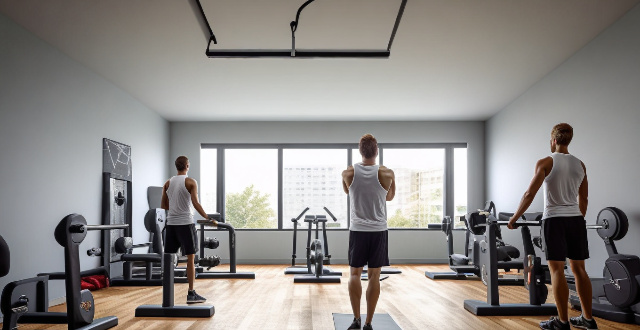Exercise is beneficial for mental health, but a gym membership isn't necessary. Benefits include reduced stress and anxiety, improved self-esteem, better sleep quality, and enhanced cognitive function. Gym pros: diverse equipment, group classes, personal training, community support. Cons: cost, time constraints, crowdedness. Alternatives: home workouts, outdoor activities, sports clubs, dance classes. The key is finding an enjoyable activity that can be consistently incorporated into one's lifestyle.

Is It Necessary to Have a Gym Membership to Experience Mental Rejuvenation through Exercise?
Introduction
Exercise is often touted as a panacea for both physical and mental well-being. But the question arises: is it necessary to have a gym membership to achieve mental rejuvenation through exercise? Let's delve into this topic in detail.
Benefits of Exercise on Mental Health
Before we discuss the necessity of a gym membership, let's first understand the benefits of exercise on mental health:
- Reduces stress and anxiety: Physical activity helps to reduce stress hormones like cortisol and promotes the production of endorphins, which act as natural painkillers and mood elevators.
- Boosts self-esteem: Accomplishing fitness goals can lead to a greater sense of self-worth and confidence.
- Improves sleep quality: Regular exercise can help you fall asleep faster and deepen your sleep.
- Enhances cognitive function: Exercise can boost memory, creativity, and thinking skills.
Gym Membership vs. Alternative Forms of Exercise
Pros of Gym Membership
1. Diverse equipment: Gyms offer a wide range of equipment that can cater to various workout needs.
2. Group classes: Many gyms provide group fitness classes led by professionals, adding variety and motivation to your routine.
3. Personal training: For those who need guidance, personal trainers are available at gyms to create personalized workout plans.
4. Community support: Being surrounded by like-minded individuals can provide social interaction and encouragement.
Cons of Gym Membership
1. Cost: Gym memberships can be expensive, which might not be feasible for everyone.
2. Time constraints: Scheduling time around gym hours might not work for everyone's lifestyle.
3. Crowdedness: Peak hours can make the gym environment less enjoyable due to overcrowding.
Alternative Forms of Exercise
1. Home workouts: With online resources, one can perform effective workouts at home without any equipment.
2. Outdoor activities: Activities like running, cycling, hiking, or swimming provide both physical and mental benefits while enjoying nature.
3. Sports clubs: Joining local sports teams or clubs can provide social interaction and regular physical activity.
4. Dance classes: Dancing is not only fun but also an excellent form of exercise that can improve mental health.
Conclusion
In conclusion, while having a gym membership offers certain advantages such as access to equipment, professional guidance, and community support, it is not strictly necessary for achieving mental rejuvenation through exercise. There are numerous alternative forms of exercise that can provide similar benefits without the financial commitment of a gym membership. The key is finding an activity that you enjoy and can consistently incorporate into your lifestyle.